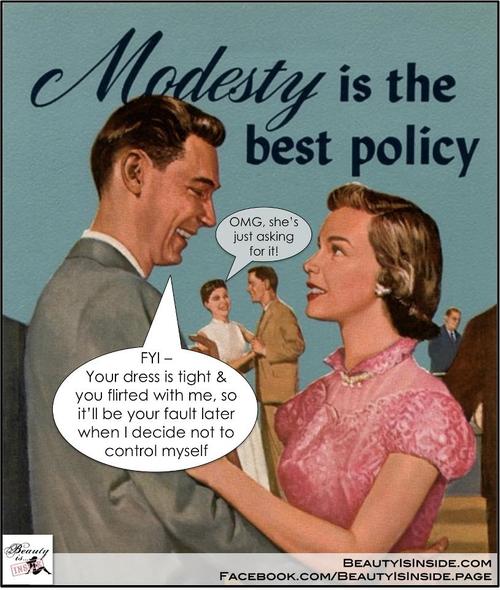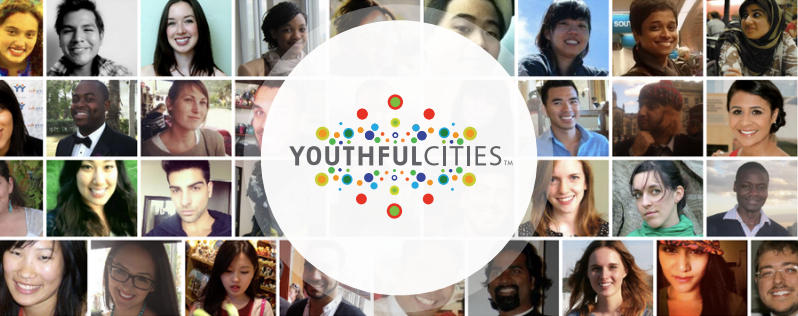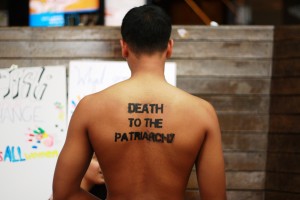by Jeriel Teo
 One of my earliest memories of secondary school life was being sexist. If you heard the word “fag**t” being thrown around my classroom, chances were they emerged from my mouth. One of the incidents I remember was offending an entire table of girls with an offhand sexist remark and walking away pleased with myself. I remember thinking, “Girls, right?”
One of my earliest memories of secondary school life was being sexist. If you heard the word “fag**t” being thrown around my classroom, chances were they emerged from my mouth. One of the incidents I remember was offending an entire table of girls with an offhand sexist remark and walking away pleased with myself. I remember thinking, “Girls, right?”
After two years and many apologies, I find myself sitting at a communal table at the AWARE centre. I remember nervous thoughts about girls, exams and the urgency to “become a man”. Such were the pressures of a thirteen-year-old in a boys’ school, eager to prove himself. Being 13 was to be aching to grow into a man of substance yet lacking the maturity to grow beyond the stereotypes of a man. I wasn’t particularly close to my father as he was a very aloof parent. My mother was preoccupied with responsibilities such as managing the household expenses and making sure I wasn’t slacking off at school. Thus, my idea of masculinity was almost entirely shaped by movies and I thought being a man meant:
- Being muscular
- Being heterosexual
- Swearing
- Making offhand sexist remarks
 The media often portrays men as inherently sexist. It seems to send the message that men are misogynistic and can’t control their sexual impulses. Such a message is problematic as it justifies misogyny. If one were to make a sexist joke in a boys’ school, one would probably get away with a joke or two. After all, we’re guys, right? We’ve been conditioned into thinking that sexist jokes are a quintessential part of the male experience, that to be sexist is normal and excusable. Some of us know about male privilege and understand that we are complicit in patriarchal oppression. Yet no one is speaking up about male privilege or sexism in boys’ schools. By remaining silent on the issue and propping up the status quo, patriarchal oppression is justified and we shirk the responsibility for working towards change.
The media often portrays men as inherently sexist. It seems to send the message that men are misogynistic and can’t control their sexual impulses. Such a message is problematic as it justifies misogyny. If one were to make a sexist joke in a boys’ school, one would probably get away with a joke or two. After all, we’re guys, right? We’ve been conditioned into thinking that sexist jokes are a quintessential part of the male experience, that to be sexist is normal and excusable. Some of us know about male privilege and understand that we are complicit in patriarchal oppression. Yet no one is speaking up about male privilege or sexism in boys’ schools. By remaining silent on the issue and propping up the status quo, patriarchal oppression is justified and we shirk the responsibility for working towards change.
Patriarchy affects not just women, but men as well. It drives us to police our own behaviour. Words like “faggot” and “girl” are used as insults to enforce strict gender norms. The current superficial concept of masculinity has disappointed many. We need to reconsider the existing concept of masculinity and acknowledge our male privilege.
 About the Author: Jeriel is a Year 4 student at Raffles Institution, skilled air guitarist and full-time disappointment to his parents. He is passionate about drama and literature, and enjoys writing both fiction and nonfiction, neither of which is particularly good, though on days when his cynicism muscle is on leave, he hopes he can improve it. He believes strongly in gender equality, and that men have as much a stake in it as women. His pet peeves include writing about himself in the third person and irony.
About the Author: Jeriel is a Year 4 student at Raffles Institution, skilled air guitarist and full-time disappointment to his parents. He is passionate about drama and literature, and enjoys writing both fiction and nonfiction, neither of which is particularly good, though on days when his cynicism muscle is on leave, he hopes he can improve it. He believes strongly in gender equality, and that men have as much a stake in it as women. His pet peeves include writing about himself in the third person and irony.





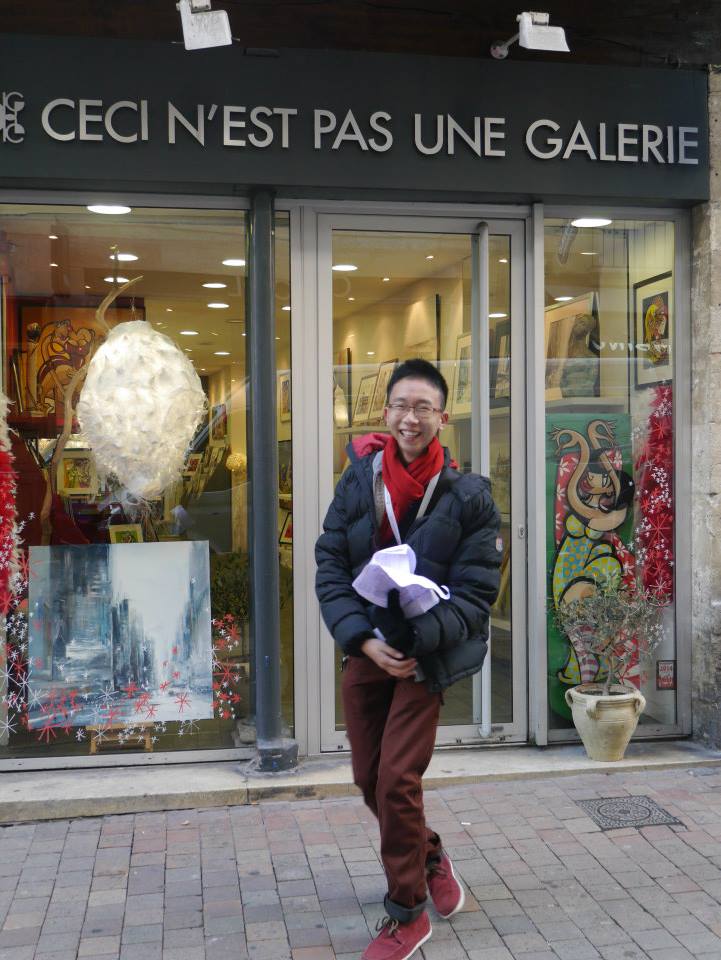
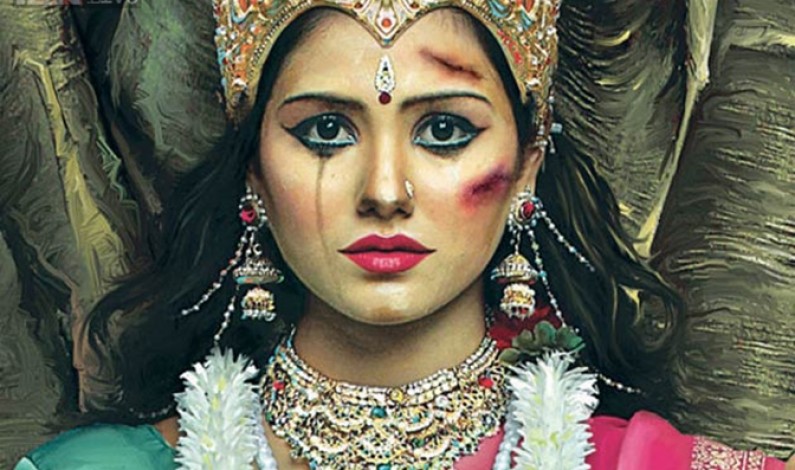
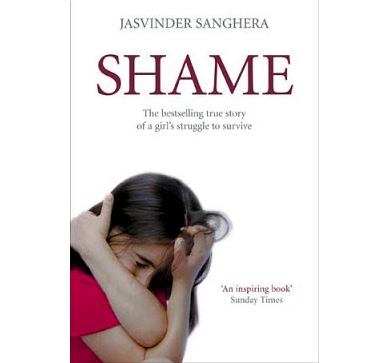 I just finished the book ’Shame’, which is about forced marriage, honour killings and domestic violence in the South Asian diaspora of Britain. The author is a Sikh woman from Derby who survived very brutal oppression and violence by her family and community, and has spent her life supporting and advocating for other South Asian women and girls in Britain, mostly of Pakistani origin, who’re affected by the same conditions she was in.
I just finished the book ’Shame’, which is about forced marriage, honour killings and domestic violence in the South Asian diaspora of Britain. The author is a Sikh woman from Derby who survived very brutal oppression and violence by her family and community, and has spent her life supporting and advocating for other South Asian women and girls in Britain, mostly of Pakistani origin, who’re affected by the same conditions she was in.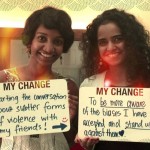

 Disney movies are another good example of gender stereotypes that young children, notably young girls, are exposed to. Cinderella teaches girls that they aren’t worthy of a prince unless they look beautiful, but also have all the domestic skills a women must have. This stereotype is reinforced in Snow White, as Snow stays at home to cook and clean while the dwarves go off to do “the real work.” I wouldn’t be the first person to note how Beauty and the Beast normalizes the existence of domestic abuse and violence within relationships.
Disney movies are another good example of gender stereotypes that young children, notably young girls, are exposed to. Cinderella teaches girls that they aren’t worthy of a prince unless they look beautiful, but also have all the domestic skills a women must have. This stereotype is reinforced in Snow White, as Snow stays at home to cook and clean while the dwarves go off to do “the real work.” I wouldn’t be the first person to note how Beauty and the Beast normalizes the existence of domestic abuse and violence within relationships.